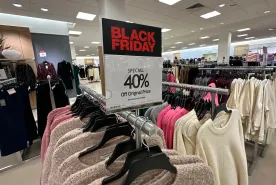Market Futures Slip as Geopolitical Tensions Weigh on Sentiment
U.S. stock futures edged lower early Thursday as investors attempted to extend Wednesday’s rebound but remained cautious amid ongoing conflict in the Middle East. Futures tied to the Dow Jones Industrial Average fell about 0.4%, while S&P 500 and Nasdaq 100 futures slipped roughly 0.2% each. The pullback followed a strong regular session in which all three major indexes posted gains, with the Dow snapping a three‑day losing streak. The overnight weakness reflects persistent market sensitivity to geopolitical developments. Escalating tensions involving the U.S., Israel, and Iran continue to drive volatility across asset classes, with traders closely watching oil prices and inflation implications. Recent sessions have seen markets swing sharply as headlines shift, underscoring the fragile balance between economic fundamentals and geopolitical risk. Despite the cautious tone, Wednesday’s rally showed that investors are still willing to buy into dips—particularl...




Comments
Post a Comment